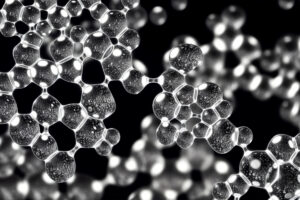Four questions to help you pick a water treatment for your home
Are you considering on buying and installing a water treatment technology at your home? Does this technology mean something unique to you? Well, over the years the need for water treatment technologies has increased. Around the world, you will see so many different types of water treatment methods and filtration systems. Though you have a dozen technologies to choose from, the primary reasons behind the need for these systems remain the same. Doesn’t this sound amazing?
People who want to buy one of these technologies are often influenced by a basic set of questions. And, in this post you will read about these questions.
Here is a quick summary on the questions raised: Why does my water taste different? Does my water have lead? Does my water affect or weaken my overall immune system? Is my property supplied with hard water? Now let’s get a little deeper.
Why does my water taste different?
Would you believe if someone told you that they are going to install a new water treatment system at their property because of bad taste? As surprising as it sounds, this is one of the most common reasons behind the need for these systems. A lot of fascinating water technologies are not capable of handling a majority of the germs. Instead, they remove basic contaminants and then change the taste of water. The taste of water differs from one place to another due to a number of reasons. Most of the time, disinfectants that are used to kill germs and keep water safe can affect the actual taste. Likewise, naturally minerals and contaminants can alter the taste. These contaminants may not be harmful, but the taste of water will start to change. If you wish to regain the natural taste of ground water, you must have a system that eliminates these contaminants and minerals.
Take home tip: Not all contaminants in water need to be removed. For instance, chlorine is essential for killing germs. And, when you use a water treatment system that removes chlorine from every system in the home, you will increase the percentage of germs raised in your plumbing lines. This is not advisable.
Experts reveal that contaminants that cause true harm to the body cannot be tasted or even smelt. This includes organic compounds with volatile properties. These compounds are capable of contaminating huge wells, without leaving any trace behind. What happens with these chemicals would be skin rashes, cancer and an affected immune system! The only way to track these chemicals and ensure that the quality of water is restored is through tests. There are exquisite testing tools for identifying chemicals categorized as “VOC”. There are special active carbon based water treatments that can help you get rid of these chemicals.
Nevertheless, whenever there is a change in the basic properties of water, you need to get the entire system tested. A lot of people are less concerned about how their water tastes, smells or looks. Well, this is bad. Mainly because you could be taking in a fair share of chemicals and germs.
Does my water have lead?
The talk about water quality will be incomplete without lead. This has been a problem for centuries. The primary source of lead in our water supply comes from taps and pipes. If your home has elders and children, this will be a major concern for you. The only way to detect the percentage of lead in your water system is through proper testing. Both private and public sources of water need to be tested.
Take home tip: The ideal percentage of lead in water should be less than 15 parts per billion. If the amount in your water supply exceeds this figure, you need to take action.
There are three ways of handling lead in your water:
1) You may need to flush water more often. If water is held still for more than 6 hours, you need to flush them. This will cause water wastage, but it is also considered as a viable solution.
2) Never drink water from hot taps. The water should not be used for bathing, cooking and cleaning. Now, this makes life difficult within the home.
3) You can consider installing a water treatment solution at your property. And, this is the simplest and most efficient ways of handling the problem.
Does water affect or weaken my overall immune system?
A weakened immune system might not be a problem at all times. But, if your home has elders or infants – the importance of high quality water increases. If your home has patients who have undergone organ transplants, or special treatments like chemotherapy you need to take care. The water they intake should be low in germs. To be more precise, the amount of “Cryptosporidium” should be as low as possible. The only solution for handling excess germs in water is filtration.
Filtering germs away is not an easy process. You need to ensure that your water treatment system is capable of handling germs that are this small. The size of the pores in your filter should be 1 micron or smaller. Else, harmful germs like Cryptosporidium cannot be kept at bay. When you buy a water treatment solution for your home, ensure that it falls under the following standards: 53, or 58. These are two recognized standards for handling germs like cryptosporidium.
Is my property supplied with hard water?
Finally, you need to verify if the property has hard water. By definition, hard water has a higher percentage of magnesium and calcium. This results in the formation of scaly residue. And, your soap wouldn’t latter easily in hard water. Water softeners may help in handling this issue. This is where “water treatments” come into the picture. Water treatments are designed with special abilities. These solutions introduce a good amount of water softeners into the system. And, it reduces the percentage of unnecessary minerals. However, these are filters that cannot protect you from harmful germs.

